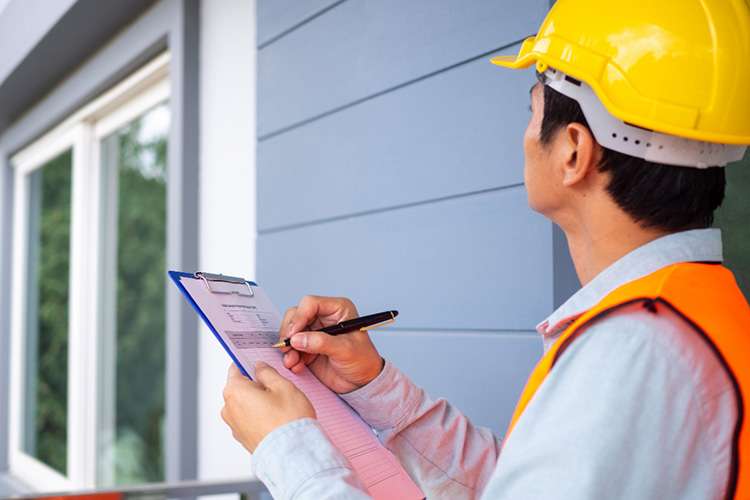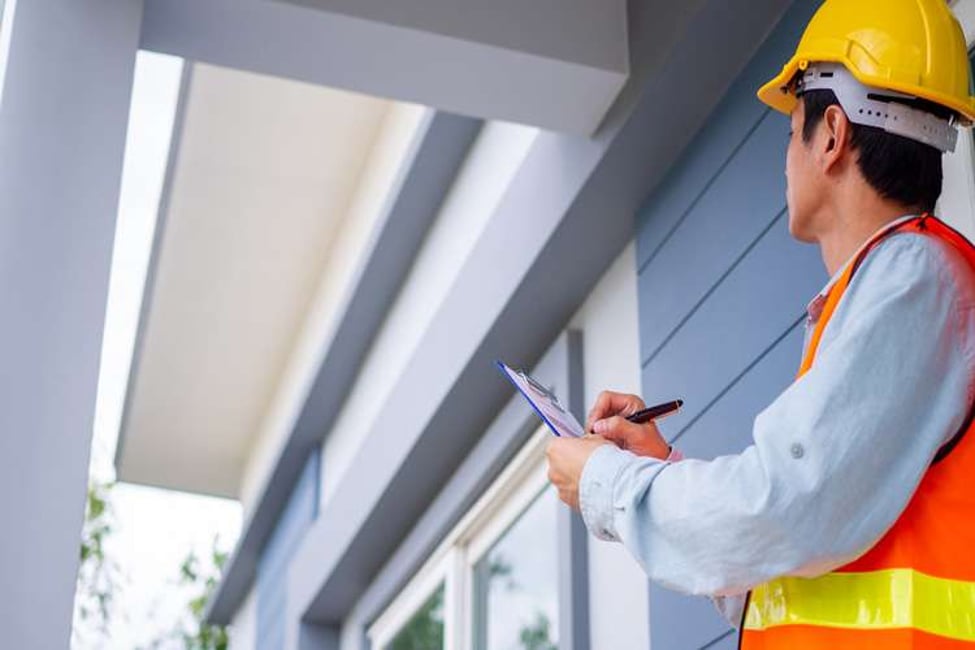Buying a home is super exciting, but before you put pen to paper and officially close on your potential new place, it's smart to do a home inspection cost estimate. This way, you'll know as much as possible about your new home and be prepared to face any challenges that may come up.
The last thing you want is to skip a home inspection and later find out you've bought a money pit that drains your time, energy, and emotions.
Home inspections may not be perfect, but they're still a valuable tool to help you learn crucial details about your potential new home, its condition, and any potential issues.
In this article, we'll give you a quick overview of what a general home inspection is, when to hire a home inspector, and what to look for when choosing one. We'll also discuss why hiring a professional building inspector is important. Next, we'll briefly cover what a general home inspector checks and answer the burning question: "How much does a home inspection cost" in Ontario?
Stay tuned, and let's get you ready for this amazing journey into homeownership!
The Inside Scoop: What's the Deal with General Home Inspections?
A general home inspection is your key to unlocking crucial insights about a new home before closing the deal, typically conducted before or after a pro real estate appraiser evaluates your home. Some savvy sellers even pay inspection fees upfront to get the lowdown on their home's condition and sniff out any potential major issues lurking beneath the surface.
Sellers, here's a hot tip: home inspections can give you the upper hand by revealing what repair requests potential buyers might have, giving you the edge in negotiations. With a home inspector's report before listing, you can fix any big problems or leave minor repairs to the buyers.
The American Society of Home Inspectors defines a general home inspection as "an objective visual inspection of the physical structure and systems of the home, from the roof to the foundation." Want to dig deeper into the importance of home inspections? Check out our article that breaks it down!
A general home inspector's report will spill the tea on the following: the house's exterior condition, structural integrity, whether appliances are in working order, and the state of the heating, ventilation, and air conditioning (HVAC) systems (tested based on the time of year and temperature).
But wait, there's more! A general building inspector will also examine interior plumbing, home electrical systems, the roof, attic, visible insulation, ceilings, walls, floors, windows, doors, foundation, under-floor spaces, basements, interior and exterior drainage, and structural and safety components.
The Ultimate Home Inspection Checklist: What's a General Home Inspector Searching For?
When it comes to a general home inspection, you may wonder what to expect. Don't worry; we've got you covered! Here's what your inspector will be scrutinizing during their visit:
Exterior Inspection:
The exterior of the house
Walls
Foundation
Grading
Garage or carport (if applicable)
Roof, attic, and chimney(s) (if applicable)
Exterior water drainage and disbursement
Waste systems (septic systems in rural areas or older homes)
Porches, decks, and patios
Yard/garden (as applicable)
Wallcoverings
Interior Inspection:
Plumbing
Electrical system
Heating, ventilation, and air conditioning (HVAC) systems
Kitchen Appliances
Fire safety
Bathrooms
Lead paint
Interior water drainage and disbursement
Flooring quality
Noxious gasses
Windows and doors
Basements and crawl spaces
Ceilings
Phew! That's quite a list. But don't worry; your inspector will be thorough and give you the lowdown on the home's overall condition. Stay tuned to learn more about how to find the best home inspector for your needs!
The Lowdown on General Home Inspections: What's Not Included and What Will Cost You More
While a general home inspection is a vital step in home buying, it's essential to know that only some things are included. Most general building inspectors won't check for asbestos, radon, methane, radiation, wood decay organisms, molds, fungi, pests, rodents, or lead paint. Suppose you want to learn more about your roof or get a roofing certificate from a roofing company or a roof condition warranty. In that case, that's something separate that you'll need to pay extra for.
It's also crucial to note that most general building inspectors don't inspect sewage, septic, or waste systems. So, you want to check the plumbing, sewer, or septic system. In that case, you'll need to hire a separate professional to handle that.
See also: How to Buy a House in Ontario
Importance of Hiring a Certified and Experienced Home Inspector for Your Home Inspection

When buying a home, getting a professional home inspection is crucial. You can save money by doing the inspection yourself. Still, it's important to hire a qualified, independent home inspector instead.
Professional home inspectors have special training and knowledge of all the components that go into building a house, how to install them properly, and how to maintain them for the safety of the home's inhabitants. Even if you consider yourself experienced, chances are you have a different level of expertise than a professional home inspector.
In addition to their expertise, professional home inspectors are unbiased and objective, which is important when assessing the condition of a potential new home. As a buyer, you may have an emotional attachment to the home, which can cloud your judgment and make it difficult to obtain accurate information. Hiring a professional home inspector can provide you with an impartial property assessment.
It's also important to note that sellers will likely only accept the findings of a professional home inspector when it comes to negotiations. This means you shouldn't involve a friend, family member, or colleague who isn't a professional home inspector to inspect for you.
In short, getting a professional home inspection is an investment in your home's safety and long-term value. Make sure to take advantage of this important step in the home-buying process.
When buying a home, hiring a qualified, independent home inspector is important to increase your chances of the seller responding to your repair requests. If you or a friend inspect the home and miss any flaws or imperfections, you won't have any recourse.
Even if you know a qualified professional home inspector who offers to inspect your home at a reduced cost or for free, hiring an impartial, independent professional is best. Suppose a friend or family member inspects your home. In that case, it can create a conflict of interest, and the seller may not trust the inspection report or be willing to meet your repair requests.
By hiring a professional freelance home inspector, you'll have peace of mind knowing that an unbiased expert is inspecting your home, and you'll have a better chance of the seller accepting your repair requests. Plus, if the inspector misses any flaws, you'll have more recourse than if someone else did the inspection.
Remember that most sellers will negotiate seriously after receiving and reading the home inspector's report. While it's okay to negotiate the elimination of major defects, don't ask the seller to fix everything. Instead, ask for repairs or a discount off the selling price to fix any major issues the home inspector finds.
In summary, hiring a professional and unbiased home inspector is essential to ensure a smooth home-buying process and avoid potential conflicts of interest.
Choosing the Right Home Inspector: What You Need to Know!
When hiring a home inspector, you want to ensure you're getting a certified professional who knows what they're doing. It would be best to look for someone certified in the area, state, or province where they work.
However, certification standards may only be available in some areas. In that case, look for a home inspector, a member of a local or national professional association of home inspectors. In Canada, some inspectors choose to be certified by the Canadian Association of Home and Property Inspectors (CAPHI).
If you're in Ontario, finding a home inspector certified by CAPHI is especially important. Leave your home inspection to chance - hire a qualified, certified professional to protect your investment!
How Much Does A Home Inspection Cost in Ontario?
If you're buying a home in Ontario, you can expect to pay anywhere from $300 to $600 or more for a home inspection. The total cost will depend on several factors, such as your home type (apartment, semi-detached, townhouse, or single-family home), location, and size.
Generally, the larger your home, the more you can expect to pay for an inspection. Similarly, if your home is older, it may cost more to inspect due to potential wear and tear on the structure and systems.
Remember that the initial inspection may not cover everything. You may need additional professionals for specific home areas, such as the roof or HVAC system. This can add to the overall cost of your home inspection.
Don't let the cost of a home inspection deter you from getting one - it's a crucial step in protecting your investment and ensuring your future home is safe and secure.
Home Inspection Cost Estimates in Ontario, CA
See also: Best Neighbourhoods in Hamilton
Conclusion: Protect Your Investment with a Home Inspection!
Buying or selling a home can be a stressful process. Still, a home inspection can provide peace of mind and valuable information. After reading this article, you should better understand what a home inspection is, why it's important, how much it costs, and how to hire a qualified inspector.
When buying a home, it's crucial to be present during the inspection and to have your real estate agent or broker with you to answer any questions. First-time homebuyers can especially benefit from a home inspection, as it provides valuable knowledge about maintaining and repairing their new home.
Don't skimp on a home inspection - it's an investment in your future and can save you thousands of dollars. Take the necessary steps to protect your investment and ensure your home is safe and secure. Hire a qualified home inspector today!

